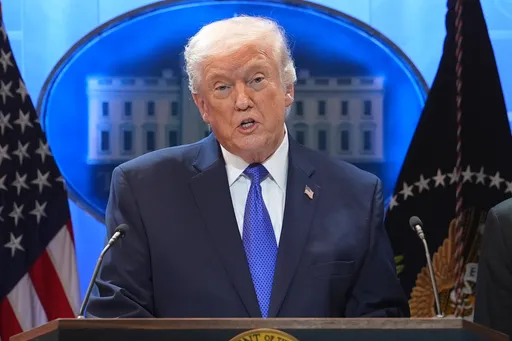The Bharatiya Janata Party (BJP) of Prime Minister Narendra Modi is clearly the favourite to win the next Indian general elections slated to be held over April and May. Yet, the party that has evolved into a formidable election machinery is leaving nothing to chance to seal the poll outcome in its favour.
If Modi is re-elected as the prime minister of the country of more than 1.4 billion for a third consecutive term, it will be an electoral feat that has not been achieved since the days of India's first democratically elected top executive, Jawaharlal Nehru, some six decades ago.
Given that the stakes are incredibly high, the Indian government led by the BJP on Monday notified changes to the Citizenship (Amendment) Act of 2019, four years after it was enacted by Parliament in the face of stiff opposition both inside and outside the legislature.
The changes to the Citizenship rules allow Hindu, Christian, Sikh, Jain, Parsi and Buddhist migrants from Pakistan, Afghanistan and Bangladesh who have entered India before December 31, 2014, to acquire Indian citizenship far more easily.
As with almost everything the Modi government does, the law and its rules, which now bring the Act into force, have been enormously controversial.
Though the government insisted that the amendments were aimed at assisting vulnerable people fleeing persecution from the neighbouring countries, it strangely excluded Muslim migrants from receiving such favourable treatment. Also excluded were the Tamils of Sri Lanka.
The cherry-picking of migrants on the basis of their religion has come amid growing fears that the far-right BJP was pushing a majoritarian agenda aimed at consolidating the votes of Hindus, who constitute some 80 percent of the Indian population. Coming in the wake of periodic but persistent hate crimes against religious minorities, particularly Muslims, the 39-page gazette notification of the Citizenship Amendment Act (CAA) has further fuelled the apprehensions.
There undoubtedly are many reasons to suspect the government's true intentions despite its best effort to wrap the CAA with a coat of 'nobility'.
If helping those persecuted is the true intention, how is it that Rohingya Muslims of Myanmar who are fleeing civil strife in the country have been excluded? Their exclusion defies logic, particularly since India shares a 1643-km-long border with Myanmar. The act's exclusion of Ahmadiyas - a Muslim sect of Pakistan who reportedly faces discrimination - has also put a question mark on the CAA's true objective.
Given their suspicious nature, the amendments were resisted from the time they were conceptualised and brought before the parliament in 2019. Street protests erupted across the country, with a particularly stubborn sit-in staged in the capital, New Delhi, for months on end. Many were outraged that the government, through the amendments, was doing away with the principles of equality and plurality enshrined in the Constitution of a secular India.
The protests against the CAA petered out over time - partly due to the Covid pandemic and partly due to a government crackdown. However, opposition to it is still raging, with some 200 petitions challenging the legal validity of the amendments that are pending before the Supreme Court - India's top court.
The BJP-led government has, however, chosen to ignore the legal challenges for the time being. Having set its sights on impending elections, it is convinced that the amendments favouring non-Muslim migrants will help build a countrywide political narrative that will please its core Hindu vote bank.
The BJP particularly intends to reap electoral dividends in West Bengal, a state in eastern India that it desperately wishes to wrest control from a regional party. The amendments to the Citizenship Act are likely to be welcomed by Matuas - a Hindu sect with roots in Bangladesh.
The sect, numbering tens of thousands, has been demanding that the rules be made easier for Indian citizenship. Now that it has been done - including the replacement of strict documentation required earlier with far easier processes - the BJP expects the Matuas to pay back the favour with their votes.
It's been a tricky balancing act for the BJP, though.
That it slept on the changes for four years after they were enacted means that the party has been carefully weighing the pros and cons. More than the legal challenges, the party would have been worried about the possible reaction to the CAA in Assam – a state farther east from Delhi and West Bengal and where a movement has been raging for decades against 'illegal migrants' from Bangladesh.
Unlike other states where dominant Hindus often view only Muslims as illegal migrants, Assamese nationalists want both Hindu and Muslim 'illegal' migrants from Bangladesh to be deported. The CAA amendments will upset them greatly since the changes make it easier for Hindu migrants to become Indians.
The BJP, however, hopes it can offset the localised resentment in Assam with electoral dividends that it would reap elsewhere. The CAA is divisive in nature, making distinctions of human suffering and aspirations on the basis of religion.
But the divisiveness also helps to electorally polarise and consolidate votes - something that Modi's BJP is clearly eyeing to benefit from.























